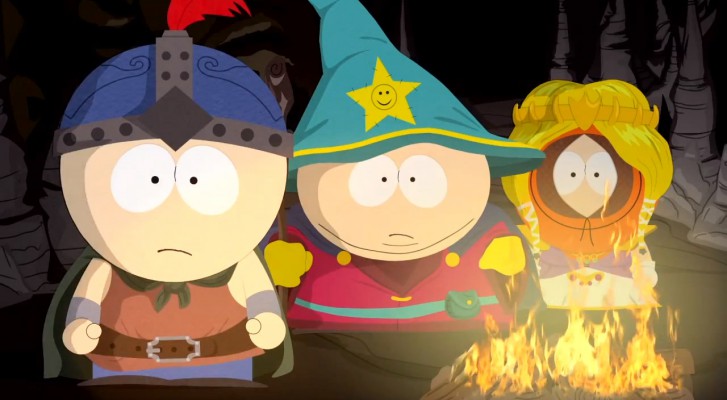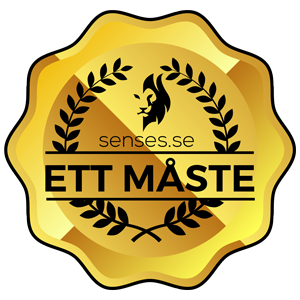TL;DR
South Park: The Stick of Truth perfectly captures the show's outrageous humor and crude animation, making it a must-play for fans. This action RPG lets you embody the new kid in town, learning combat and magic from Cartman himself as you battle Elves in a D&D-inspired quest. Master timed button presses for attacks and defenses to experience hilarious, often offensive storylines and bizarre side quests. While not for the easily offended, it's a faithful and deeply funny interactive South Park season. Dive into the unadulterated chaos and see if you can handle the Stick of Truth!
South Park: The Stick of Truth closely emulates its TV counterpart, making it particularly appealing to fans of the series. However, this uniquely outrageous and often hilarious action role-playing game offers an experience unlike any other, and is well worth exploring even for those less familiar with the source material.
Let’s be upfront: if you are easily offended, particularly sensitive, or unfamiliar with South Park, we suggest discontinuing reading here. The bankruptcy of THQ almost two years ago was disheartening. Two highly anticipated games, DarkSiders III and especially South Park: The Stick of Truth, faced an uncertain future. While numerous South Park games have been released over the years, Stick of Truth distinguishes itself as the first to involve creators Trey Parker & Matt Stone directly in its development. Fortunately, UBISoft acquired this potentially excellent game, and despite a delay of over a year, it has finally arrived – and it delivers a compelling experience.
South Park: The Stick of Truth is an action role-playing game that visually mirrors a genuine South Park television episode, complete with the original voice acting, deliberately crude character animations, and unapologetic political incorrectness. The tone is immediately established when choosing a character class (customizable to your preference, including skin color, though not gender – the in-game explanation is provided later). Will you opt for a Warrior, Magician, Thief, or… Jew? The temptation to select the least common role-playing game class is strong, and you may find yourself equipped with sidelocks, a kippah, and a shepherd’s staff. As your character progresses, you can unleash magical attacks like Jew-Jitsu, acute circumcision, dreidel assault, and strikes from David’s slingshot (the one that felled Goliath). And this is merely the beginning.
The narrative centers around the children of South Park engaged in a Dungeons and Dragons game. Cartman assumes the role of “The Grand Wizard,” commanding the human faction against the Elves, led by “The Elf King” (Kyle). You embody the new kid on the block, initially learning combat and magic under Cartman’s abrasive, racially charged tutelage. As you level up, you gain access to superior weaponry, sturdier armor, and new magical abilities. Anyone familiar with role-playing games like Final Fantasy or Elder Scrolls (frequently referenced and parodied) will understand the core mechanics.
A differentiating factor of South Park: The Stick of Truth compared to other role-playing games lies in its demand for precise timing. While battles are turn-based, executing the correct action or pressing the appropriate button at the precise moment is crucial; failure to do so results in a failed attack. The same principle applies to blocking enemy assaults. This requires some initial practice and adjustment to the combat system, which may feel somewhat restrictive during the first hour until mastered. However, once the timing is refined, the gameplay flows smoothly, revealing outrageously absurd storylines familiar to viewers of the television series. These scenarios range from alien anal probes to confrontations with Nazi zombies mutated by extraterrestrial power, and raids on the school to rescue detained comrades. This is complemented by bizarre side characters (assaulting the homeless, aiding Al Gore in capturing TheManBearPig, and evicting Mongolians from Chinese City Wok), potent superpowers, and an abundance of scatological humor.
South Park: The Stick of Truth, like South Park in general, has often provoked controversy due to its animated format, despite being explicitly intended for adult audiences. As such, this animated game is unequivocally targeted at adults (as indicated by the 18+ age rating). Nevertheless, certain scenes involving anal probes have been censored in Europe (why the fascination with anal probes?), along with an abortion sequence and other content deemed too extreme for European viewers. This censorship appears somewhat incongruous and hypocritical, considering the game’s niche audience, established familiarity with the source material, and the existing 18+ age restriction. Furthermore, the depiction of Nazi zombies (who also speak in samples of Adolf Hitler) presented potential challenges for distribution in Germany and Austria.
We are fans of South Park, and even though not every episode has been exceptional over its 13-year run (name a series that has maintained consistent brilliance), it remains consistently funny and irreverent (the feature film, South Park: Bigger, Longer & Uncut is highly recommended!). Everyone is subject to ridicule – Christians, emo-kids, blacks, women, Jews, the homeless, role-players, Asians, politicians, Americans, Germans, and countless others. It represents the epitome of vulgar humor, insulting and discriminating against all groups equally. The game, South Park: The Stick of Truth, stands as a remarkable and rare example of a near-perfect interactive South Park experience, requiring approximately 10-13 hours to complete, and akin to playing through an entire season of the television show. If you appreciate the series, you will likely enjoy this. Conversely, if you dislike South Park, the game may not appeal to you, despite its underlying quality as a role-playing game beyond the adolescent and sometimes offensive humor.
South Park: The Stick of Truth provides a unique experience unlikely to be replicated soon. If you have any interest in either the genre or the series, we recommend purchasing it and preparing for a role-playing game that will leave a lasting impression (if not permanently!).

